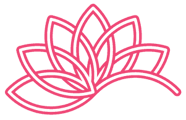January 04, 2024
Dealing with Postpartum Hair Loss: What to Expect

Navigating the journey of motherhood is filled with joys, challenges, and a myriad of changes—both physically and emotionally. Among the many postpartum adjustments women experience, one that often catches them off guard is postpartum hair loss. This natural phenomenon, characterized by increased shedding in the months following childbirth, can leave new mothers feeling concerned and unsure of how to address it. We delve into the realm of postpartum hair loss, offering valuable insights, practical tips, and female hair advice to help mothers understand what to expect and how to manage this temporary yet significant aspect of the postpartum experience.
Understanding Postpartum Hair Loss
Normal Hair Growth Cycle
To understand postpartum hair loss, it’s essential to grasp the normal hair growth cycle. Hair grows in a cyclic pattern, consisting of three phases: anagen (growth phase), catagen (transitional phase), and telogen (resting phase). During pregnancy, elevated hormone levels prolong the anagen phase, resulting in thicker, fuller hair. However, after childbirth, hormone levels normalize, causing more hairs to enter the telogen phase simultaneously.
Causes of Postpartum Hair Loss
The primary cause of postpartum hair loss is hormonal fluctuations. During pregnancy, increased estrogen levels prolong the growth phase of the hair cycle, resulting in reduced shedding and thicker hair. However, after childbirth, estrogen levels drop, leading to a shift in the hair cycle and increased shedding. Additionally, stress, nutritional deficiencies, and genetics can contribute to postpartum hair loss.
Duration and Severity
Postpartum hair loss typically begins around three months after giving birth and peaks around six months postpartum. While the amount of hair loss varies among individuals, it is usually more pronounced in women who experienced minimal shedding during pregnancy. Fortunately, postpartum hair loss is temporary, and most women notice regrowth within six to twelve months.
What to Expect
Timeline of Postpartum Hair Loss
Postpartum hair loss typically occurs between three to six months after childbirth. During this time, it’s common to experience increased shedding, especially when washing or brushing the hair. While the shedding may be alarming, it is essential to remember that it is a temporary phase.
Amount of Hair Loss
The amount of hair loss varies among individuals. Some women may notice a significant increase in shedding, while others may experience minimal changes. Factors such as genetics, hormonal fluctuations, and overall health can influence the severity of postpartum hair loss.
Common Concerns
Many women have concerns about the amount of hair they are losing and worry about whether their hair will return to its pre-pregnancy state. It’s essential to reassure new mothers that postpartum hair loss is a natural process and that regrowth will occur over time.

Tips for Managing Postpartum Hair Loss
Healthy Lifestyle Habits
Maintaining a healthy lifestyle can support overall hair health and promote regrowth. Encourage new mothers to eat a balanced diet rich in vitamins and minerals, stay hydrated, exercise regularly, and get an adequate amount of sleep.
Hair Care Routine Adjustments
Adjusting your hair care routine can help minimize the appearance of postpartum hair loss. Avoid hairstyles that pull on the hair follicles, minimize heat styling and chemical treatments, and use gentle hair care products.
Dietary Considerations
Certain nutrients are essential for healthy hair growth, including protein, iron, vitamins A, C, D, and E, and omega-3 fatty acids. Encourage new mothers to incorporate foods rich in these nutrients into their diet, such as lean proteins, fruits, vegetables, and fatty fish.
Seeking Professional Help
When to Consult a Healthcare Provider
While postpartum hair loss is typically a temporary and self-limiting condition, it’s essential for women to seek medical advice if they experience excessive or prolonged shedding, signs of scalp infection, or other concerning symptoms.
Available Treatments
In some cases, healthcare providers may recommend treatments to help promote hair regrowth, such as minoxidil (Rogaine) or hormone therapy. However, it’s crucial to weigh the potential risks and benefits of these treatments, especially for women who are breastfeeding.

Emotional Impact
Psychological Effects of Postpartum Hair Loss
Postpartum hair loss can have a significant emotional impact on women, affecting their self-esteem and confidence. Many new mothers may feel distressed or anxious about the changes in their appearance.
Coping Strategies
Encourage new mothers to practice self-compassion and focus on the positive aspects of motherhood. Engaging in self-care activities, seeking support from loved ones, and connecting with other mothers experiencing similar challenges can help alleviate feelings of isolation and distress.
Support Systems
Importance of Support from Loved Ones
Support from partners, family members, and friends is crucial during the postpartum period. Encourage new mothers to communicate openly with their loved ones about their feelings and concerns regarding postpartum hair loss.
Joining Postpartum Support Groups
Connecting with other mothers who are experiencing similar challenges can provide valuable emotional support and reassurance. Encourage new mothers to join postpartum support groups or online communities where they can share their experiences and seek advice from others.
Self-Care Practices
Stress Management Techniques
Managing stress is essential for overall well-being and can help minimize the impact of postpartum hair loss. Encourage new mothers to practice stress-reducing activities such as meditation, yoga, deep breathing exercises, or spending time in nature.
Prioritizing Self-Care
It’s essential for new mothers to prioritize self-care and carve out time for activities that bring them joy and relaxation. Whether it’s taking a hot bath, reading a book, or indulging in a hobby, self-care is essential for maintaining emotional well-being.





